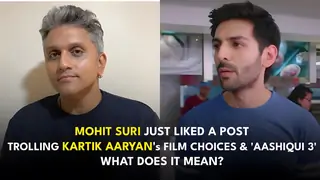Well, even after 4 episodes on the trot, there seemed to be a lack of stand out scenes, or solid material for a detailed analysis. Still, as I do not want to add more episodes to this lot, I am going ahead regardless. So please bear with me if this post seems disjointed at times, and do not fail to note where my tongue is for the most part - firmly in my cheek!😉
In fact, I am writing today mainly to wish all of you a very auspicious and joyful Ganesh Chaturthi. May the Vignaharta, the remover of obstacles, make your path during the year ahead smooth and fulfilling, healthy and happy!
Now for our serial. I am dividing this post into 2 parts, depending on the location: Agra and Amer.
Agra: All the real action, political, psychological and emotional, was there.
The last farewell:The scene of Jalal bidding farewell to Bairam Khan was openly and unashamedly emotional on both sides. It was also genuinely cathartic, and this later saves Jalal from a deep, corrosive sense of guilt about Bairam Khan's death.
While Rajat's Jalal was wonderful, his deep, dark eyes clouded with infinite sadness as he comes around to a position just behind his Khan Baba and pleads: Rukh jayiye na, Khan Baba! Apna faisla badal lijiye.. Naved Aslam's Bairam Khan was not far behind.
The unprecedentedly open affection with which he turns, wipes Jalal's wet eyes and then pulls his head down and kisses him on the forehead, was not only intensely moving - all the more so in a man who always set his face against any displays of emotion - but it was also elegiac, like a sad, last farewell.
Bairam Khan is clearly possessed by some sort of premonition of his impending death, and that colours all that he says: Yeh shamsheer aap apne pas rakhna, taki yeh aapko Khan Baba ki yaad dilate rahega.. And in response to Jalal's plea that he change his mind and stay back: Faisle badla ja sakta hai, Jalal, aakhri khwahish nahin.. Hum yeh dua karenge ki Makkah-Madina ka muqaddas safar tay ho ki na ho, lekin tum (and here he reverts to the familiar, affectionate tum instead of aap), ek kaabil badshah zaroor banoge.. Yeh bhi dua karenge ki tum sabse azeem aur azeez badshah kehlao.. Ya Khuda, hum rahein ki na rahein, apni rahmat ka saaya Jalal ke sar par zaroor rakhna.. Aameen!
And he turns, grasps Jalal's shoulder, and pats it gently, in mute affection.
This stress on the azeez, or beloved, along with the azeem or greatest, is striking in a man like Bairam Khan who would, all his life so far, never have bothered about whether his pupil-cum-protg was liked by the populace, not to speak of being loved. In fact, he would have wanted him to be feared, and he says so quite often in the past. So this new emphasis on azeez is indicative of a major inner change in this man of steel, who had almost single-handedly resurrected, and expanded, Babur's empire that had crumbled under Humayun.
As Bairam Khan, accompanied by Salima Begum and little Rahim, moves away, Jalal is now openly in tears.
It was noteworthy that Begum Saridon (Hamida Bano)'s attempt to console her son at this point meet with a blunt rebuff, as Jalal wipes his eyes and walks off, ignoring his Ammijaan.
Mahaam Anga is, till then, busy showing us what 'crocodile tears' really means, but at this snub to the Malika-e-Azam, her lips curl in a secret smile.
Siyaasat ki jaal: Maham's very clever sleight of hand in the Diwan-e-Khas is truly an inspired move worthy of Chanakya. Her recommendation of Bahadur Khan for the post of Wazir-e-Aala, after neatly and persuasively removing Shamshuddin, a man of honesty and integrity, from the fray, is a master stroke, which made an enemy into a dependent, and Maham into the real power behind the new Wazir-e-Aala.
I suppose she was sure that he would not do a Thomas Becket on her, and turn out to be a Shamshuddin Atgah Khan in all but name. The voice over assures us that he did not do anything so dramatic, but continued to be Maham's pawn, thus giving room for Adham's financial depredations on the imperial coffers. As for Maham, by the time the Malwa affair comes up, she has shed even this fig leaf, for it is she who is shown advising Jalal on how to tackle it. Bahadur Khan was not there even for the sake of form!
It was never, to my knowledge, ever made clear how and when Bahadur Khan was replaced by Shamshuddin, who was the one in place during the dature ka ark affair.
Undue dependence: The other, and very important point that is revealed during these machinations is how unsure Jalal is of himself and how dependent he is on the advice of even his largely useless courtiers, who have nothing better to offer than the lament that Haalaat qaboo se baahar ho sakte hain.
But I was delighted to see that Jalal, for all his lack of hands on experience, retorts to this Cassandra-like pronouncement with the vigour of a young lion: Haalat hamesh hamare saath the aur hamare saath rahenge! 👏
This (temporary) weakness of Jalal's is really a reflection on Bairam Khan as his mentor. As I have mentioned earlier, it was a failing of Bairam Khan's that he does not seem to have trained Jalal in the nitty gritty of imperial administration, in the choice of personnel for key posts, in the distribution of duties among them. He wanted to do all of that himself, and keep the reins of power firmly in his own hands, with the result that when all the responsibilities of an emperor descend suddenly on Jalal's shoulders, he staggers at first. No wonder he confesses to the (predictably blank-faced) Ruqaiya Humein Khan Baba ki kami mehsoos ho rahi hai..Wo kisi bhi mushkil ko hum tak aane hi nahin dete the.. Aaj is baat ka ehsaas ho raha hai ki Mughal sultanat ke liye unki ky ehmiyat thi..
Which is of course the nub of the problem: that Jalal, because he has not been given the necessary hands on training in such matters, falls short now. But not for long.
A loss beyond bearing: As Jalal reeling from the shock of his Khan Baba's murder, Rajat pulls out all the stops in a bravura display of unbridled grief. As Jalal falls to his knees, throws his head back, and screams aloud in unbearable agony, I was reminded of Hrithik Roshan as Altaf in Mission Kashmir, traumatised by the death of his foster ammi in a bomb blast meant by him for her husband. At least here, Jalal has to cope only with loss and grief, not with the heavy burden of guilt.
Later, as he prays for the repose of his Khan Baba's soul, Jalal also seeks the strength to become an exemplary ruler: Khan Baba ki rooh ki aman baksh, mere Allah! Unki aakhri khwahish thi ki unka Jalal ek kaabil Shahenshah ban sake..Koyi raasta dikha jis se unki aakhri khwahish poori ho sake.. Humein itni taaqat baksh ki hum apni taqdeer khud likh sakein...
He seeks all this not for himself, but in order to fufil his mentor's last wish, thus showing once more that he has the capacity to care more for someone else than for himself.
Finding his feet: The decisiveness that is necessary in an imperial ruler has already started making itself felt in Jalal. When Maham's suggestion that they get Bakshi Bano married again finds favour with him, he does not fail to add, with unexpected firmness: Hum jald se jald is baat par koyi faisla sunayenge!
Mahaam Anga: cunning and capable: She has slipped effortlessly into Bairam Khan's mojvis, and as noted above, Bahadur Khan is nowhere to be seen as she, and she alone, counsels Jalal on the Malwa expedition. And soundly as well, except that the wisdom of sending Adham Khan against Baz Bahadur is open to question.
She is superbly hypocritical, and most convincingly too, while supporting Jalal as he collapses after learning of Bairam Khan's death. Her voice is nearly suspended with tears as she tells him: Aapki dhaal toot gayi hai, Jalal! She knows the value of maintaining appearances, of never being caught on the wrong foot and exposed. In this, she is aided by her invaluable ability to weep buckets to order, without having to feel an iota of real sorrow, and in fact is chortling with joy inside.
When she swears loyalty to a petulant Ruqaiya, and later, when she advises her, with remarkable prescience, to have more of a care of her husband when he needs her if she is not to be displaced one fine day, Mahaam Anga seems to be genuine. Perhaps she is paying Ruqaiya back for the ehsaan she did her by supporting drastic action by Jalal against Bairam Khan. Their alliance might be tenuous, and Ruqaiya might be unbearably haughty at times, but Mahaam Anga knows that she will never be a threat to her own hold on Jalal. So, when a real danger appears in the person of Jodha, this alliance is likely to get a fresh lease of life.
At one point. I felt almost sorry for Maham, saddled with such a aaiyaash fool for a son, not to speak of a nattering idiot of a bahu. She must have raged internally against having to depend on such a defective instrument as Adham Khan, a lazy lout, but also an unguided missile whose erratic fits even she cannot foresee. She must have been shocked by his unexpected display of Chanakya neeti to dispose of their arch enemy Bairam Khan, but she knows him well enough not to expect an encore!
No one can accuse Maham of not thinking big! She is quick to suggest a re-marriage for Bakshi Bano, in the hope that she can be married to Adham Khan if he wins Malwa for Jalal.
What Maham says to herself about all this is very revealing: if this does happen, Hum Jalal ke timardaar nahin, uske rishtedaar honge.. There speaks the frustrated baandi, with an intelligence and siyaasi kabiliyat that was completely at odds with her low status, at times consumed by the corrosive frustration to which this gave birth. And it is this corrosive frustration that will surface again when the prize eludes her, and Jalal chooses Sharifuddin as the husband for Bakshi Bano.
Ruqaiya: vain and foolish: My worst fears are being proved right, as the new Ruqaiya, her face totally expressionless whatever the situation, muffs her opportunities with remarkable consistency. She not only has no genuine feeling for her childhood friend Jalal when he is in such distress - and what sort of bachpan ki dost is this who does notr rush to the side of her dost when he is suffering so much?😡 - but she does not even have the smarts to fake it . In fact she looks not so much blank as at a loss when faced with so much of open emotion.
While Mahaam Anga kneels tearfully by Jalal, and consoles him convincingly even as her heart is secretly jumping with joy, Ruqaiya, relieved to have this excuse, goes off to settle a harem squabble. It is no use blaming the script for Hoshiyaar's unbelievable impertinence in intruding on such a scene, for this has by now become a habit of his, and of his mistress.
Ruqaiya had done similarly foolish things earlier too, but then Jalal was not in such agony. Now, her neglecting him so callously is, as Napoleon said of a tactical misstep by one of his generals, worse than a crime, it is a blunder. And a blunder that will come to haunt her in the future, as Mahaam Anga's ominous warning comes true.
The new Ruqaiya is past praying for, as everything that made her interesting has been leached outl leaving only a cold-hearted, plastic, petulant and foolish Malika-e-Hind. Her idiotic re-iteration that Jalal has no dil, and this when she has just watched him in helpless agony mourning the death of his Khan Baba, only shows that she is not merely vain. but also stupid and incapable of any logical thought.
Unlike Maham, who explains to her why Jalal does have a dil, but, to judge from the closing shot of the Malika-e-Hind, in vain.
As the precap shows Jalal, delighted that Sharifuddin has launched the attack on Amer, telling his puzzled Badiammi (mistakenly called Ammijaan here) what it is that Amer has that is so rare - Jo Agra mein nahin hai, Ammijaan, jo poore Hindustan mein nahin hai - one can hear a deep metallic sound repeating itself. It is the bell tolling for Ruqaiya Sultan Begum.
Amer: Now for the Amer end. I am leaving out all the wedding preparations in Amer: the rather apathetic sangeet, the chausar games, the fatuous talk about time going faster in a family with girls (here there are 3 of them, so presumably it went thrice as fast. Would that the story would also move at least half as fast!😡), the advent of the Bhanpur rajpurohit, and even Shakuni Bai's umpteenth sybillic pronouncement.
The last, however, varied the proceedings this time by adding a very sinister peal of mocking laughter, while Mynavati, who would win any a competition for rolling one's eyes hands down, looked ready to burst a blood vessel. I wish she had actually done so, thus sparing us the sight ot her permanently agonized face for a while at least!
I was relieved that the CVs did not commit a major anachronism and play Mere haathon mein nau nau choodiyaan hain at the sangeet, though that might have made things a bit livelier!😉
When Raja Bharmal was listing out all the livestock to be supplied to Suryabhan as part of Jodha's dowry, he mentioned Suryabhan's weight in gold . I could not help thinking that if the weight taken has been Bharmal's instead, Suryabhan ki to chandi ho jaati!😉😉
The Amer royal family seems to model itself on the Borgias, seeing the ease with which Jodha's mother produces a vial of poison out of a box - the bottle as elegant as a perfume flacon by Givenchy - and hands it over to a bemused Jodha.
For Rajput royals, the Amer lot seem to be temperamentally so defeatist that the bahus start planning the jauhar even before their patidevs have ridden out of the castle gates. I was glad to see Jodha bucking this gloomy trend and actually believing that her bhaisas will win. She of course forgets about her other bhaisa, and all that he knows about Amer's military secrets.
Sujamal on the battlefield: Ekta's budget not stretching to grand battle scenes, we were treated to some limited cut and thrust, mostly by Sujamal, till he was brought up short by being faced with Khagar Singh.
This Sujamal is a dead loss, poor chap. He is neither resigned enough to accept the loss of Amer philosophically, nor hard enough to do whatever it takes to get it and keep it. It is a bit, but not quite, like Mephistopheles and Faust. Sujamal's faustian bargain with Sharifuddin is going to leave him as a nowhere man, while Bharmal cuts a deal with Jalal that will leave him out in the cold. .
As for the Mughals respecting him, no battle can be won by a man who vacillates in a crunch. And in such an alliance of convenience, winning is the only thing that matters. Surely Sujamal should have decided in advance what to do if he came face to face with one of his cousins in the battlefield? And there are ways of disabling an adversary without killing him. Why stare at Khagar Singh like a dummy till someone else attacks you from the other side?
Having seen this, Sharifuddin would very likely have concluded that this chap is an undependable weakling, and would have mentally absolved himself from his commitment to getting the throne of Amer for Sujamal. As for Jalal, he is not bound by any such commitment anyway.
There was no indication of what had been accomplished on the first day of battle before the Sharifuddin-Sujamal combo retired to their tent for the night. The only point that made me sit up was when Sujamal insists, for sentimental reasons, that Jodha's fiance Suryabhan not be killed (he has already personally spared one of Jodha's brothers) . Now Sharifuddin knows that Jalal wants not only Amer but Jodha as well, which is why he goes along with Sujamal so readily in the first place. The last thing that he would want is a live fiance for Jodha, as a major roadblock for the Mughal emperor, whom Sharifuddin wants to please at any cost. (Following our rule, we are not going into any other reasons that Sharifuddin might have for wanting to get rid of Suryabhan)
Suryabhan:short-lived bravado: It was unclear how Suryabhan landed up there with his forces almost instantly, unless he was alerted by pigeon mail and covered the distance from Bhanpur to Amer by apparating in, like Harry Potter and his Hogwarts pals😉. He talks of shortcuts, but Bhanpur is several days away from Amer by road, and no shortcut would reduce that time to less than half a day! And how did he find out about the attack on Amer anyway?
Jodha of course believes that Suryabhan is a veeron ke veer, and that since he has come to the aid of Amer, a Mughal defeat is assured. However, the cold, hard fact is that her champion is straightaway defeated, fair and square, by Sujamal, who could easily have killed or incapacitated Suryabhan but, mindful of his own affection for Jodha, does neither. With any other opponent, Suryabhan would have been killed on the spot, and Sharifuddin's spearing him from behind would not have been necessary, nor his decapitating him afterwards.
And the three Amer princes, who converge on Suryabhan's dead body without any thought being given to protecting their rear, end up like sitting ducks and are promptly taken prisoner by Sharifuddin's men.
Comic opera defence: The Amer royals were always a bit of a joke, and by now they are a farce. The battle scenes on the second day, especially the capture of the 3 Ameri princes, were straight out of comic opera bouffe, as the French called it - pure buffoonery.
On the morrow, the Amer fort defenders clearly had no idea of what had happened in the field the day before. Surely any army worth its salt, not having a Sanjaya with doordrishti at its disposal, would have arranged for couriers to alert the home base about the fortunes of war? The Ameris apparently did not think this necessary. Even so, surely some straggler from the Amer-Bhanpur army would have escaped and made it back to Amer and told them about the disaster? Apparently not.
What was even stranger, the defenders of the Amer fort did not seem to have heard of lookouts at all, for they appeared shellshocked when the Mughal forces came literally up to the castle gates undetected!
The chaos in the fort when Sharifuddin's soldiers come to deliver their master's message had to be seen to be believed. First of all, as noted above, there was not even a single look out well outside the fort to give some advance warning. And the defenders, from Raja Bharmal downwards, were clearly in the dark as to what had happened the previous day in the battle.
The oddest thing was that there appeared to be no organised defence of the fort either. No lookout, no warning system, no contingency planning for a defeat that Bharmal at least was expecting from the word go, and which Bhagwan Das had been specifically tasked with performing. And this chap is going to rule Amer?
Instead, the soldiers on the ramparts started beating their drums only after the Mughal horsemen were visible. The inhabitants then ran helter skelter all over the place, with Mynavati herding the women into the safe room. The men, headed by the paunchy Bharmal, his pot belly shaking like a jelly and bouncing in step, brandished their swords and ran to the open gates.
Why the gates were open is a mystery. Amer was at war, which should have been enough reason for keeping them shut at all times. As things were, however, if there had been about a hundred Mughal soldiers, they could have overrun the place without even having to break down the main doors.
It was very funny to watch Bharmal shouting at the Mughal soldiers, who, their mission accomplished, were going back, apostrophizing them as cowards for not standing and fighting. It did not seem to occur to him that if they had intended to fight, they could easily have penetrated to the palace before he could get going. And that therefore their purpose must be quite different.
And again, as Bhagwan Das stops while reading the message from Sharifuddin, Bharmal orders him to continue, so that, after seeing what the Mughals threaten, he can respond to them in their own language! It reminded me of Suryabhan, standing in front of the pile of soldiers killed by Jalal while escaping from Amer, swearing that Jalal would have to answer for every laash and every drop of blood he had shed, and that, when they met next, tum is duniya mein nahin rahoge!
The Mughals were made out, in the background commentary, to be deceitful, dishonourable and brutal. But in the foreground visuals, the Ameris were clearly made out to be vain, posturing, incompetent fools.
NB: If you want to recover from watching this chaos, and to see calm courage under fire, and impeccable dignity even when disaster stares you in the face, you should go to the early episodes of the opulently mounted Maharana Pratap. The Maharani of Mewar, Jaiwantibai, is utterly superb, her dark, fine featured face an oasis of calm, and unruffled determination to do whatever it takes to uphold the honour and the traditions of Mewar. Compared to her, Mynavati behaves like a village housewife.
The wrong sar: So now Jodha is left looking on from the upper balcony, while Bhagwan Das is at a loss how to read out the rest of the letter. Meanwhile, the maqool tohfa that Sharifuddin has despatched along with his message is still lying on the ground. It will take till tomorrow for Jodha to find out that it is the wrong sar. Not the one she had demanded, Jalal's, but that of Suryabhan. But of that in my next.
By the way, for those wondering about the title. It is a variant on Man proposes, God disposes. Here it applies to almost all our characters: Bairam Khan setting out on a pilgrimage to Mecca (though he had his premonitions), Maham aiming at a Bakshi Bano-Adham Khan marriage to shore up her social standing and her power alike, Jodha confident of an Ameri victory against the Mughals thanks to Suryabhan, Suryabhan boasting of prevailing on the battlefield, Sujamal desperate to win Amer, and finally, Mynavati confident of having made Shaguni Bai bite the dust with a wrong prophecy.
Adios, my friends, till Sunday next!
Shyamala/Aunty/Akka/Di
.












































363